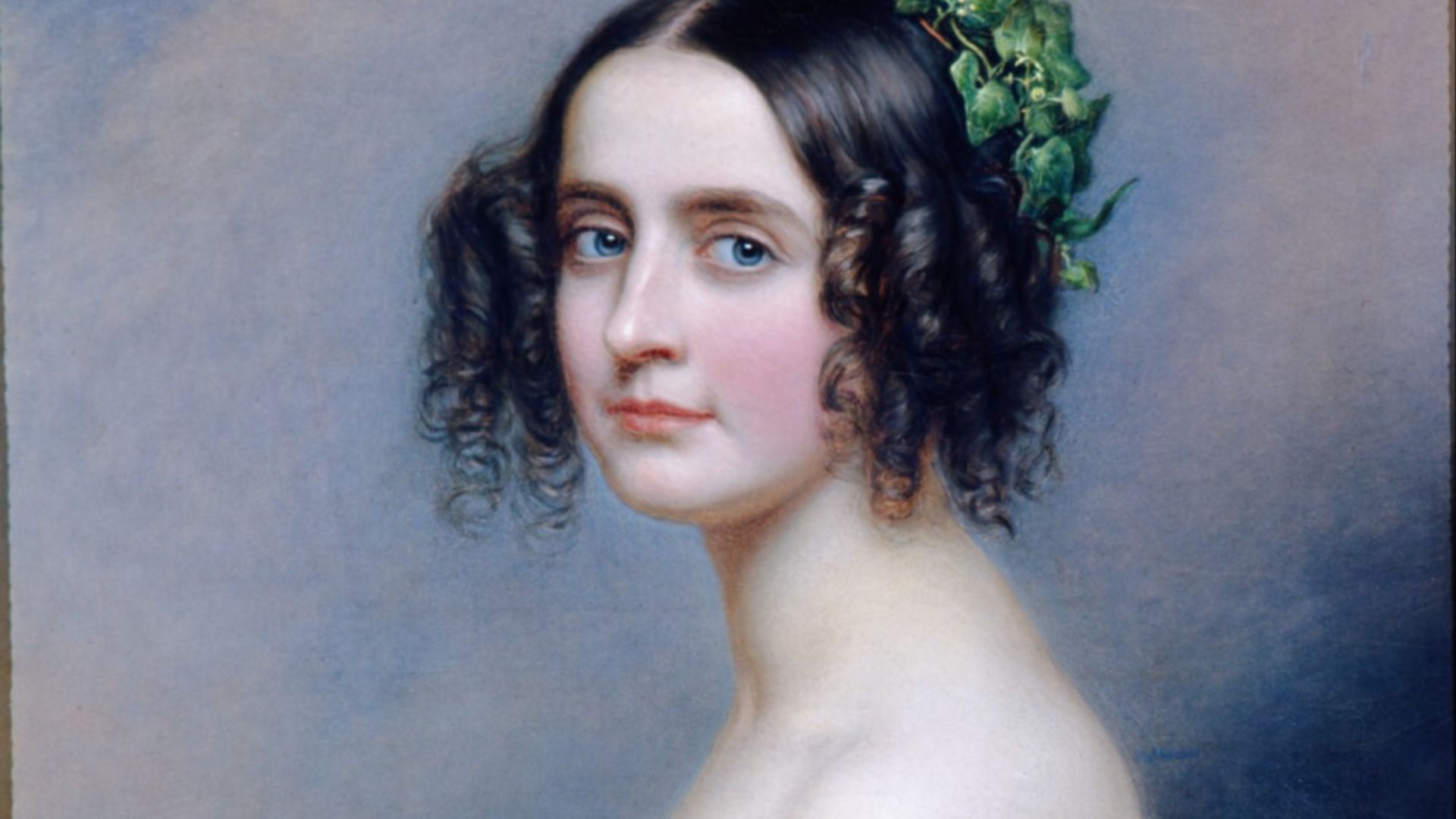The Glass Delusion: When Historical Figures Believed They'd Shatter
 Joseph Karl Stieler on Wikimedia
Joseph Karl Stieler on Wikimedia
Princess Alexandra of Bavaria had a flourishing literary career, publishing short stories, essays, and translations. She also believed she had swallowed a glass piano, which was in constant danger of puncturing her organs. For the rest of her life, Alexandra tiptoed through doorways, convinced that any bumps would cause the piano to shatter.
Alexandra lived not in the Dark Ages, but the mid-19th century, a time when telegraph wires and railway lines were connecting countries and continents. She was an intelligent and educated woman. Yet, she suddenly developed a delusion that there was a glass piano lodged inside of her.
Madness With A Meaning
Curiously, Alexandra's was not the only case of this so-called "glass delusion". Cases were recorded through the 14th to 19th centuries. The delusion was so well-known that one of the first compendiums of mental disorders makes mention of "[those who believe] they are all glass, and therefore will suffer no man to come near them".
Glass was a valuable commodity in early modern Europe, associated not only with luxury—windows were a show of wealth in great houses—but with fragility. Glass was also an alchemical object; a handful of sand could be transformed into a pane of shimmering glass with the right amount of heat.
Royals were also fragile and precious things, as any student of history well knows. It should come as no surprise that almost all of the recorded of glass delusion occurred in royals. Not only were they the most educated citizens of their time, but they had the most to lose.
The Case Of Charles The Mad
 François-Auguste Biard on Wikimedia
François-Auguste Biard on Wikimedia
It can be easy to dismiss the glass delusion as silly bordering on satirical. Royals believed they would shatter into a thousand pieces if handled too roughly. The same way they believed that their blood was bluer than everyone else's, and that that made them better.
One of the best-known sufferers of the glass delusion was Charles VI of France, also known as Charles the Mad. Charles, like so many royals, ascended to the throne as a child. From his early 20s until his death at 53, he was plagued by bouts of mental illness.
As his episodes grew in severity, Charles forgot his own name, and the names of his family members. He once went five months without bathing or changing his clothes. For his own safety, the entrances to his home were walled up to keep him from running out.
And, yes, Charles believed that he was made of glass. Worried he would shatter, Charles slept on a bed of straw and wore clothing reinforced with iron rods. He experienced his first episode after one of his closest friends survived an attempt on his life.
The cause of Charles's illness remains unknown. Some scholars believe it to be linked to familial schizophrenia. In early childhood, he witnessed his mother's complete mental breakdown.
Let us return, once more, to Alexandra of Denmark, the princess who swallowed a piano.
The Princess Who Swallowed A Piano
 Unknown authorUnknown author on Wikimedia
Unknown authorUnknown author on Wikimedia
While Alexandra's condition was not unique, it is worth noting that she had additional neuroses. Specifically, she was obsessed with cleanliness and would only wear white clothing. Psychologists have posthumously diagnosed her with obsessive compulsive disorders.
At the risk of armchair diagnosis, it appeared that Alexandra's glass piano was a extension of her disorder. Already fixated on maintaining cleanliness, the glass piano threatened her stability. In a way, this delusion was a method of exerting control over herself.
While Alexandra believed she swallowed the piano in childhood, her delusion started at 23. At the time, Bavaria in turmoil. Rioters took to the streets demanding that Alexandra's father, Ludwig I, either give up his throne or his controversial mistress.
Ludwig chose his mistress, abdicating in favor of his son. His children, several of whom were unmarried and living at home, were thrown into a position of great stress. Large cracks were beginning to show in their family; it is not so absurd as to suggestion that Alexandra's glass delusion may have been brought on by stress.
Alexandra never married, spending the final years of her life in a convent for noblewomen. She in 1875, at the age of 49. 150 years later, she is known for her delusion, rather than her literary accomplishments.
KEEP ON READING

The Glass Delusion: When Historical Figures Believed They'd Shatter
Joseph Karl Stieler on WikimediaPrincess Alexandra of Bavaria had a…
By Ashley Bast Nov 20, 2025
Sophie Scholl: The Teen Who Defied Hitler and Paid With…
Unknown German police officer on WikimediaMost twenty-one-year-olds are preoccupied with…
By Cameron Dick Nov 20, 2025
Outlander: How A Romance Show Brought The Battle Of Culloden…
David Morier on WikimediaThe historical drama Outlander is a popular…
By Breanna Schnurr Nov 20, 2025
The Strange History of Mad Lighthouse Keepers
US Coast Guard on WikimediaLighthouse keepers have watched over the…
By Farva Ivkovic Nov 19, 2025
How Diana's Compassion Gave Her The Title, "The People's Princess"
John Mathew Smith & www.celebrity-photos.com from Laurel Maryland, USA on…
By Farva Ivkovic Nov 19, 2025
20 Of History's Messiest Love Triangles
Three's A Crowd. Love triangles are delicious to read about,…
By Ashley Bast Nov 19, 2025
